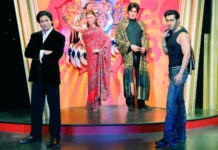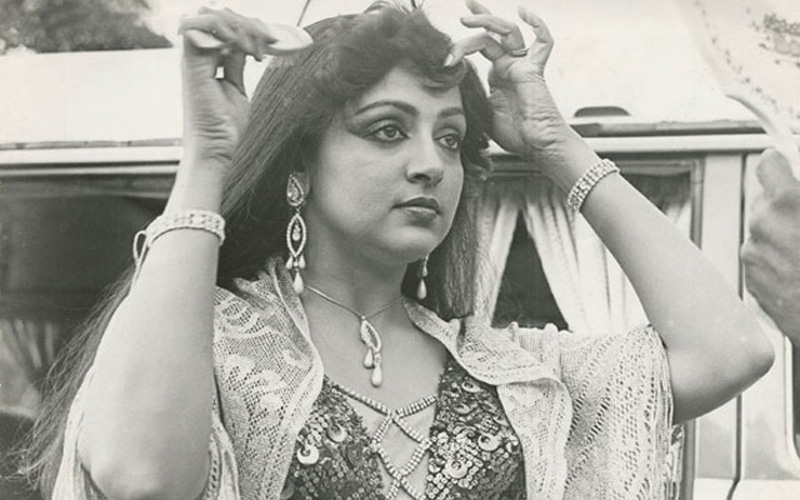Muhammad Ali, the record-setting world heavyweight champion whose personality transcended sports

WASHINGTON: People all over the world are remembering the life of world heavy weight champion Muhammad Ali and the Americans take special pride in US born Ali, as he stood for courage and peace.
He was a torch bearer for equality and humanity and showed that the sky was the limit if one strived for the best with true conviction and perseverance. Ali joined major leaders in the World Peace movement like Mahatma Gandhi, Martin Luther King, Jr and Nelson Mandela, both King and Mandela followed Gandhi’s peace path.
Muhammad Ali, the record-setting world heavyweight champion whose personality transcended sports, died at the age of 74, on June 3, 2016, in a hospital in Arizona after being admitted with respiratory problems. Ali’s death was confirmed in a statement issued by family spokesman Bob Gunnell.
Hundreds of people filed past his childhood home in Louisville, Kentucky on Sunday, June 6, now a museum dedicated to his remarkable life, to honor the boxing champion known simply as “The Greatest”.
President Barak Obama joined the many people commemorating the life and legacy of boxing legend Muhammad Ali, “Like everyone else on the planer, Michelle and I mourn the passing of but we are also grateful to God for how fortunate we are to have known him if only for a while…. The greatest chose to grace our time…” “Muhammad Ali shook up the world and the world is better for it, we are all better for it ” said Obama. “A part of me slipped away, the greatest piece,”
George Foreman, a former heavyweight boxer and one of Ali’s most formidable opponents in the ring, said on Twitter after the news of Ali’s death. Roy Jones Jr, a former champion boxer who grew up during Ali’s prime, also said on Twitter: “My heart is deeply saddened yet both appreciative and relieved that the greatest is now resting in the greatest place.” Many different communities irrespective of their religious beliefs and ethnicity in the US admired him and remembered him, appreciating his life as a role model.
The Indian American community also called him a man of great accomplishments and living example. Indian spiritual leader Sant Rajender Singh respected Ali and also pushed the peace agenda globally. Meanwhile Indo-Caribbean activist Ramesh D. Kalicharran who leads and organizes Bharat Yatra (group travel from New York to India) affectionately remembered the boxing champion for his charisma. He met the legend Muhammad Ali at the 100th Anniversary ceremony organized by the National Ethnic Coalition of Organizations (NECO) where Muhammad Ali was honored with the Ellis Island Award thirty years ago at the prestigious Waldorf Astoria in New York. Indeed, it was a historic event which drew a host of celebrities including the ever popular Andy Williams. ‘But the memory remains vivid and strong until today,” said visibly moved Kalicharran.
Three-time world heavyweight boxing champion Muhammad Ali won 56 bouts over a 21 year career, advocated nonviolence outside the ring while wielding fists of fury inside it. His 30 year journey from the top of human form to physical decrepitude brought on by Parkinson’s disease which slurred his speech and made the once-graceful athlete trapped in his own body and his wife, Lonnie who became his caretaker.
Ali was born in Louisville, Kentucky, on January 17, 1942, as Cassius Marcellus Clay Jr, a name shared with a 19th century slavery abolitionist. 16-year-old Ali was very upset, when his bicycle got stolen. He went to the police station to file a report and told that he would beat the thief to pulp. The officer told him to become a trained boxer then he could speak.
That incident changed the youth and teenaged Cassius started training at the local fire station. He was smitten by heavyweight boxing ever since. He won the gold medal in the Olympics and then at 22, he took on heavyweight champion Sonny Liston in Miami. Ali won and proclaimed to the world: “I am the greatest!” Ali was the first man to win heavyweight titles three times. Few could argue with his athletic prowess at his peak in the 1960s. With his dancing feet and quick fists, he could, as he put it, “float like a butterfly and sting like a bee”. He finished with a record of 56-5 with 37 knockouts. However, Ali became much more than a colorful and interesting athlete. He attended his first Nation of Islam meeting in 1959 and converted to Sunni Islam in 1975 and changed his name to Muhammad Ali. In 1967, he famously refused to fight in Vietnam, citing religious reasons. Ali’s conversion to Islam and his opposition to the Vietnam War, made him more than an athlete or just a sports superstar but a cultural icon. Ali once estimated that he had made $57m in his professional career, but the effect of the punches lingered long after most of the money was gone. His influence extended far beyond boxing.
He became the unofficial spokesman for millions of blacks and oppressed people around the world because of his refusal to compromise his opinions and the fact that he stood up to white authorities in the US and elsewhere.. “I can’t imagine a world without Mohammad Ali,” Lou Eisen, a boxing writer and historian said from Toronto, Canada. “He has been such a towering figure not only in sports, but also culturally, politically and socially. He loved everyone and everyone who met him loved him.” “There was no bitterness in the man. He was not bitter towards the government or the boxing association, which did a lot of illegal things to him. He did not let the bitterness get to him.” In a realm where athletes often battle inarticulateness as well as their opponents, Ali was known as the Louisville Lip and loved to talk, especially about himself. At a time when Muslims in America are facing hatred, the late boxing legend Muhammad Ali will be remembered as the true, peaceful face of Islam, residents of his home town say. He spoke boldly against racism in the 1960s, as well as the Vietnam War on the public scene in the 1960s with several nationally televised fights During and after his championship reign, Ali met scores of world leaders, travelled to promote Islam and for a time he was considered the most recognizable person on earth, known even in remote villages far from the US. Most of the people remembered him as a product of his time, of the Civil Rights Movement, of the Black Power movement.
Coming of age, he was the symbol of the emergence of that way of thinking all over. Ali’s diagnosis of Parkinson’s disease came about three years after he retired from boxing in 1981. He was diagnosed with Parkinson’s disease in 1984 at the age of 43. Parkinson’s disease is a movement disorder that is chronic and progressive, and its cause is unknown. It results from loss of certain brain cells and its symptoms are ongoing ones that worsen over time. The disorder is marked by trembling in legs, arms and face as well as impaired balance and coordination. There is no known cure to the disorder, but there are treatment options to manage its symptoms Ali married Lonnie, a Vanderbilt grad with a head for business in 1986. Ali called her “the boss” because she brought a much-needed domestic discipline to his life. .
Although Ali’s proclamation of himself as “the Greatest” rang true until the end for the millions of people worldwide who admired him for his courage, both inside and outside the ring. Mourners left flowers and other mementos remembered his sporting prowess and his activism, but also spoke of Ali and his Muslim faith and how his example can help dispel stereotypes about Islam. “Most of the time, you see in the media there’s a bad image of Muslims,” said Hamza Shah, a Louisville doctor, where Ali grew up and first started boxing. “The one person we can definitely get a good image of was Muhammad Ali, and he portrayed what the real Islam is.”
Republican presidential hopeful Donald Trump in December sparked outrage when he suggested a temporary ban on all Muslims entering the United States. Many leaders have suggested that political leaders should use their position to bring understanding about the religion of Islam, and clarify that these misguided murderers have perverted people’s views on what Islam really is. While others thought that Ali was respected throughout the Muslim world – from Pakistan to Indonesia, from Saudi Arabia to Malaysia and across Africa – for the values he espoused and promoted. That message of tolerance and compassion was celebrated Sunday at an interfaith prayer service in Ali’s honor at the Islamic Center in Louisville. After the September 11, 2001 attacks on New York and Washington, Ali asked Americans to use caution against categorizing all Muslims as “extremists”. “Islam is a religion of peace. It does not promote terrorism or killing people,” Ali said. “I am angry that the world sees a certain group of Islam followers who caused this destruction, but they are not real Muslims. They are racist fanatics who call themselves Muslims, permitting the murder of thousands.” He repeated the message in his December response to Trump, saying: “True Muslims know that the ruthless violence of so-called Islamic jihadists goes against the very tenets of our religion.”
Democratic presidential hopeful Bernie Sanders, who is fighting Hillary Clinton for the right to face Trump in November, said that Ali was not only an elite athlete but a champion of civil rights, and a true believer in Islam. While slowed down by disease in recent years, Ali still was able to make numerous appearances “Humble people, I’ve found, don’t get very far,” he once told a reporter. Once asked about his preferred legacy, Ali said: “I would like to be remembered as a man who won the heavyweight title three times, who was humorous and who treated everyone right. As a man Ali never looked down on those who looked up to him. He stood up for his beliefs and tried to unite all humankind through faith and love. “And if all that’s too much, then I guess I’d settle for being remembered only as a great boxer who became a leader and a champion of his people. And I wouldn’t even mind if folks forgot how pretty I was,” said Ali.
Ali is survived by his wife, the former Lonnie Williams, who knew him when she was a child in Louisville, along with his nine children. Married four times, he had seven daughters and two sons. Ali’s later years silence was in stark contrast to the loud bombast of his boxing career. With his passing God came for his champion. So long great one.








